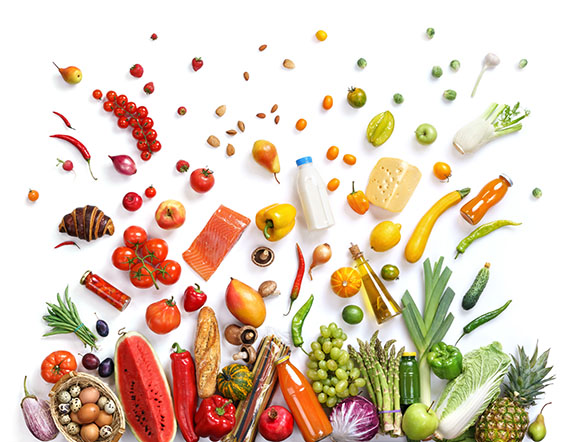
In your attempt to be as healthy as possible, one of the most confusing dilemmas you may face is what to eat. There is so much information and so many choices, diets, miracle foods, and even foods to avoid at all costs, that it’s difficult to know whether or not you’re eating the right stuff in the right way. In our attempt to sort out all of the frequently conflicting information about diet, we tend to label foods as good or bad. And while you know that chemically loaded products disguised as food are bad, figuring out what to eat beyond that isn’t always so clear.
Enter Chinese food therapy. Using food for healing is a tool that falls under the umbrella of Traditional Chinese Medicine, in which the foods you choose can be very specific to your personal health needs. Here are some principles of how Chinese food therapy works, and how you can use food to improve your health.
-Chinese food therapy is based on the idea that each food has built-in properties. A food can warm or cool your body depending on its particular temperature, which is not about how hot or spicy it is, but how your body feels after you’ve eaten it. For example, ginger, garlic, scallions, and onions tend to warm you up, while cucumbers, bananas, and melons are cooling. Beyond temperature, foods also have an essential action on your body. Some foods are very dense and nourishing, others can drain fluids, and still others may be very moistening. In addition, foods can affect specific organs in your body. For example, apples and pears are considered to be beneficial foods for your lungs.
-Because each food has a variety of properties, a practitioner schooled in Chinese dietary therapy can choose those foods that are most beneficial to your unique health needs. This is based on your overall body constitution, as well as any symptoms or illnesses you may be experiencing.
-Digestion is considered to be one of the most important components of Chinese food therapy. If you’re eating wonderful food, but are unable to digest it well, the nutrients and benefits of that food are lost. Therefore, if your digestion is an issue, your practitioner would work to improve it through acupuncture, Chinese herbs, and easily digestible foods.
-One strategy for improving digestion is to avoid a lot of raw foods. While we have been taught that raw is the most nutritious way to eat plant-based foods, uncooked vegetables are fibrous and hard to digest. Cooking your vegetables breaks down the fiber and “predigests” it without overloading your digestive system.
-The longer a food is cooked, the warmer it becomes to your body. So on one end of the spectrum, raw foods are considered to be cooling, while foods that have been roasted are warming in nature. That’s why we tend to eat a lot of raw fruits and vegetables that are in season in the summer, but gravitate more to soups and stews during the winter months.
-Very cold foods like iced drinks, ice cream, or frozen foods can also slow down your digestion. Cold foods cool off the interior of your body and can bring your digestion to a halt, which can take some time to bring back to normal functioning. If you’ve ever felt like you just ate a gut bomb after finishing a bowl of ice cream, you know what I’m talking about.
-What you eat is all about energy. For decades, most of us have been taught that we should try to control or at least count the calories in our food if we want to maintain or lose weight. However, in Chinese medicine, the idea is to get the maximum amount of energy out of your food, because every system in your body depends on that energy to function. If you’re run down or struggling with fatigue, have poor immunity, or issues with temperature regulation, your best strategy is to eat a variety of warming, well-cooked foods. Your practitioner can guide you as to what specific foods are best for your particular condition.
-Dampness is a term that practitioners of Chinese medicine use to describe a condition of poor fluid metabolism. Dampness causes the fluids in your body to form something akin to puddles. Symptoms of dampness include retaining water, weight gain, a feeling of heaviness, loose stools, yeast infections, phlegm, and athlete’s foot. The most common causes of dampness are eating the wrong foods for your body or poor digestion. A diet high in saturated fats, sugar, and rich or greasy foods causes your digestion to get bogged down, essentially clogging up the mechanism that metabolizes fluids. Acupuncture and herbs can be helpful in treating damp conditions, but changing up your diet is crucial.
While some of the basics of Chinese dietary therapy may seem counter-intuitive, it takes into account your specific body constitution and health status. It’s all about selecting the foods and cooking methods that are best-suited to your particular body and nutritional needs—and that’s a good thing!

Cindy Chamberlain is an acupuncturist in Overland Park, KS and the founder of Eastern Healing Solutions, LLC. She is licensed in Kansas and Missouri and has been practicing traditional Chinese medicine since 1996.
